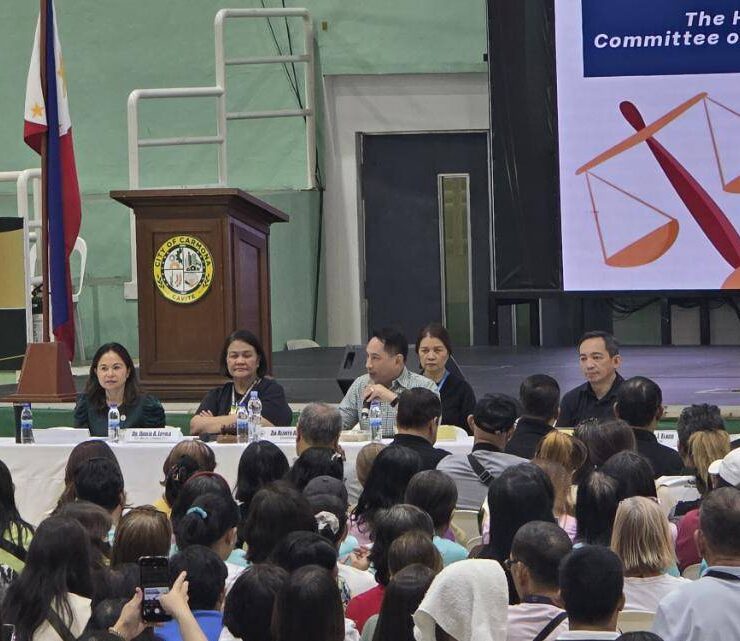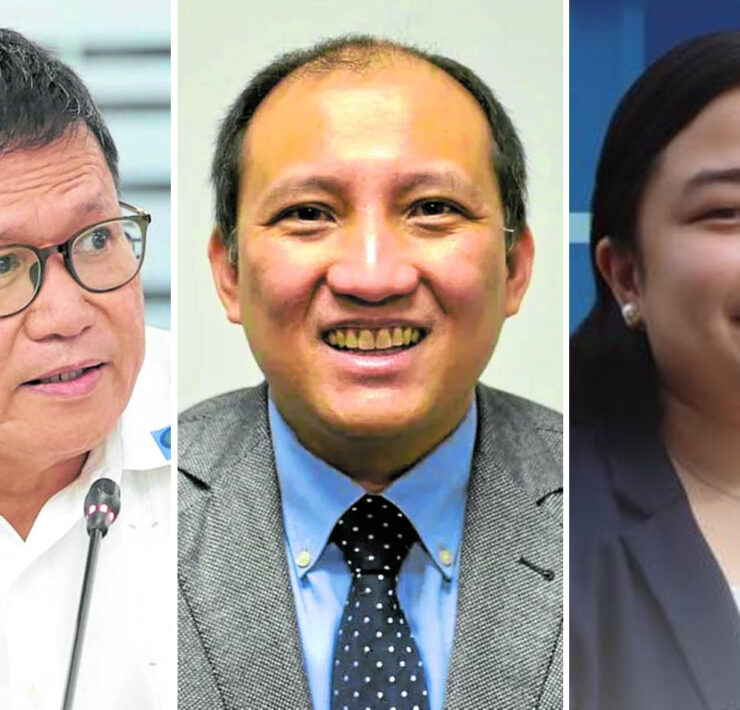Light after Martires

Some cause happiness wherever they go; others whenever they go.
The famous line by Oscar Wilde might well have been written about Samuel Martires. On July 27, the country’s chief graftbuster quietly left the Office of the Ombudsman after seven years, a departure that was met not with regret but relief from every Filipino who has ever wished for a transparent government.
Such was the long shadow cast by Martires over his office that any successor could be seen in nothing but a positive light. For this, newly appointed Ombudsman Jesus Crispin Remulla should thank—or blame—Martires’ twin policies that crippled his own mandate to run after the corrupt and permanently stained his legacy.
Yet, if Remulla hopes to restore the Ombudsman’s battered credibility, the former justice chief must do more than just not being a Martires. That means he must treat his office as the public’s last line of defense against corruption, rather than the first to protect criminal officials (or official criminals) from accountability.
Remulla’s early decisions have inspired guarded optimism. On Oct. 14, he made good on his promise to reopen public access to the statements of assets, liabilities, and net worth (SALNs) of officials and to authorize field offices to resume lifestyle checks on any official whose assets are “manifestly disproportionate to income.”
Selective conditions
After years of secrecy, the memo signaled a break from Martires’ warped reading of the law, which all but dimmed one of the few lights left in the fight against corruption.
Still, are these enough?
The Center for People Empowerment and Governance (CenPEG) said the Ombudsman could go much further by removing all “selective conditions” for the release of SALNs to the requesting public, including the media.
“Accountability is meaningless if transparency is partial; we cannot build trust by hiding behind institutional loopholes,” said CenPEG chair Roland Simbulan, who proposed that the Ombudsman make the SALNs of President Marcos, Vice President Sara Duterte and all members of Congress open to “public inspection” without any “special permissions” required.
To be fair, the President and Congress leaders have expressed willingness to make their SALNs open to the public. Last week, Mr. Marcos said his declared wealth “will be available to whoever would like to [request it].” Senate President Vicente Sotto III said public access to SALNs of senators “is not new to us,” while Speaker Faustino Dy III promised that House members were just as open to disclosing their SALNs.
Ombudsman’s role
Among other conditions, the new Ombudsman’s memorandum requires journalists seeking SALNs to submit their reports for monitoring. But as journalism professor Danilo Arao noted, it is neither the Ombudsman’s duty nor its right to police how the press uses public documents. Transparency, it must be said, is built not on control but trust. The Ombudsman’s role is to guarantee that those in power are not enriching themselves at the people’s expense, and that guarantee relies on open, independent scrutiny, including by the fourth estate. The public’s right to know is not a privilege granted or withdrawn at whim by the government, but a freedom enshrined in the 1987 Constitution.
Remulla, too, must remember that the right to access SALNs stems from Republic Act No. 6713, which mandates disclosure of these vital documents. Until recently, the SALN law had enabled journalists and watchdogs to uncover hidden wealth, from former President Joseph Estrada’s unexplained assets to the late Chief Justice Renato Corona’s undeclared dollar accounts.
Moral compass
Martires, who was appointed by former President Rodrigo Duterte, gutted that mechanism in September 2020 when he issued the memorandum circular that restricted access to SALNs, arguing that these were being “weaponized” against public servants. For the same absurd reason, he limited the conduct of lifestyle checks, turning the Ombudsman’s office into a fortress for the crooked.
That is the credibility deficit Remulla inherited from Martires. Thus, the former’s every move will be judged not merely by what he restores, but by what he refuses to repeat. To rebuild trust, Remulla must make transparency the default mode by streamlining public access to SALN records and treating the media as partners in uncovering malfeasance, instead of busybodies with suspect motives. He must strengthen the Ombudsman’s prosecutorial arm and publicly report on pending graft cases while resisting political influence, including from the President who appointed him.
For now, the public can only hope that Remulla’s policy shift is genuine, because after Martires, the bar could not be any lower.
But even a sliver of sunshine is enough to remind the nation of what daylight looks like. Remulla’s office has the opportunity to once again be the government’s moral compass, provided its leader chooses openness and honesty over secrecy. Only when transparency is restored as the government’s guiding light can the Ombudsman finally step out of the dark shadow Martires left behind.





















